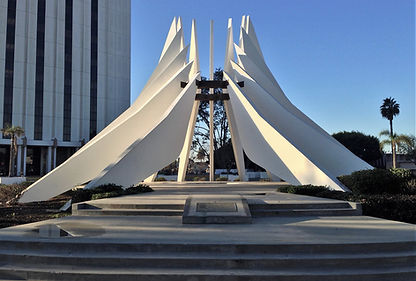Black Creative Hubs Struggle to Survive Amid Waning Support
- Citizens Coalition Admin

- May 9
- 2 min read
Tucked within Culver City’s Arts District, Black Image Center offered more than just photography resources—it was a warm, communal haven for Black creatives. Established in 2020 by six photographers who met on Instagram, the center officially opened in Mid-City in 2022, providing free access to film, printers, and an inspiring library of Black photography books. Regular workshops and a robust artist-in-residence program underscored its mission: to foster a supportive, artistic environment for Black Angelenos. It quickly became known for the everyday "magic" of collaboration, laughter, and mentorship.
Yet despite its cultural and community impact, Black Image Center recently announced the closure of its physical space, citing limited capital and burnout among the small leadership team. Co-founder Maya Mansour emphasized that the closure is not the end but a transition to a more flexible, non-physical format. Nonetheless, the news has resonated deeply with the community, mirroring a broader pattern of similar closures among Black-owned community hubs in Los Angeles.

From the Salt Eaters Bookshop in Inglewood, which shuttered its physical location in 2024, to Bloom & Plume in Echo Park and Noname’s Radical Hood Library, many once-thriving Black spaces have faced existential financial pressures post-2020.
These closures underscore a harsh truth:
The wave of support following the George Floyd protests has ebbed, leaving many grassroots Black initiatives without the sustained resources they need to survive.
Leaders like Mansour and Salt Eaters’ Asha Grant openly describe the emotional and financial strain of maintaining these spaces. Whether dealing with expensive plumbing repairs, unpaid labor, or the psychological toll of constantly supporting others, many founders found themselves overextended. Even when foot traffic and engagement remained high, rent and operating costs proved unsustainable without consistent financial backing.
Meanwhile, Jazzi McGilbert of Reparations Club—another Black-owned cultural space—continues to walk the tightrope between community support and business viability. While her shop has seen growth, rising rent and a soon-expiring lease cast uncertainty over its future. Her insights highlight a systemic issue: these spaces are expected to serve as sanctuaries, therapists' offices, and cultural centers, often without public funding or economic safeguards.
Concerned Citizens' Commentary:
The pattern unfolding in Los Angeles should concern us all. Black Image Center’s closure is not an isolated incident—it’s part of a troubling trend where culturally vital spaces that serve historically marginalized communities are forced to shut their doors due to lack of long-term support. These centers are not merely “businesses.” They are pillars of connection, healing, and creativity. When they disappear, so too does a piece of the cultural fabric that keeps our city equitable and humane.
It is not enough to rally behind Black spaces during moments of national reckoning. These spaces need reliable, sustained funding and policy frameworks that protect them from market volatility. Public-private partnerships, local government grants, and consistent community investment are crucial. If we fail to preserve places like the Black Image Center, we aren’t just losing creative workspaces—we’re abandoning our commitment to racial justice and collective wellbeing.
What future mechanisms can cities like Los Angeles implement to prevent such closures and support culturally essential community spaces?







Comments